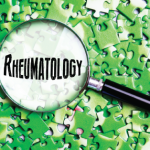Cultural vs. Structural Competency
Cultural competency, a concept developed nearly 60 years ago, is intended to address disparities in health outcomes. “This particular framework aims to focus on communication and building trust with patients,” Dr. Scott said. “It is also intended to enhance knowledge about sociocultural factors linked to health benefits and tries to develop awareness about certain cultural groups. But it is deeply flawed.”
The problem with cultural competency is that healthcare providers are affected by their own implicit biases. Additionally, attempting to make providers aware of the dynamics of a certain culture can lead to a habit of stereotyping patients. Plus, according to Dr. Scott, scant research has looked at the health outcomes of people treated by clinicians who employ cultural-based competencies.
“The best way for us to address this is to move beyond a framework of cultural competency and embrace structural competency,” said Dr. Scott. “Structural competency is the ability of providers to move beyond the cultural dynamics of our patients and to look at upstream effects on health outcomes.”
These upstream effects would take into consideration how laws, policies, education, transportation systems and food available in underserved neighborhoods, among other things, can affect patients and shape their ability to manifest health or disease.
Dr. Scott discussed a 1973 series of studies in the Archives of General Psychiatry that highlight how a cultural competency framework led to the schizophrenia misdiagnosis of a large number of Black patients in the 1960s.3 Black people were also significantly less likely than white people to receive a diagnosis for other mental illnesses, such as depression or bipolar disorder.
“This highlights how we need to move past a cultural framework, which could lead us down a path that still propagates health disparities,” Dr. Scott said, “and instead embrace a structural competency framework.”
How to become more structurally competent: Becoming more structurally competent as a healthcare provider can be a tool to combat racism in both the medical and clinical teaching environments. Dr. Scott offered some ways to become structurally competent:
- Remain skeptical of race-based differences and diagnoses. Race should not be used as a shortcut in making diagnoses or assuming health outcomes;
- Create alliances with doctors and other professionals who serve vulnerable communities. When providing care to marginalized or oppressed populations, partner with community organizers and activists who center their work on creating solutions to help dismantle health disparities;
- Learn from social scientists and other professionals; and
- Speak up when you notice a microaggression and become comfortable with being uncomfortable and having challenging, difficult conversations.



